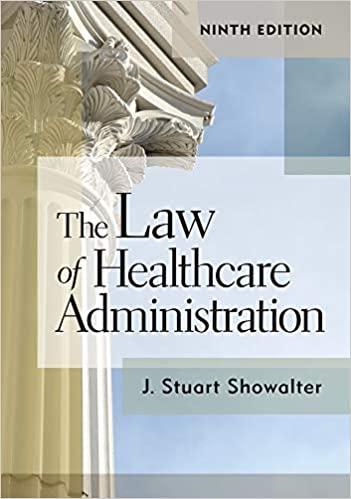Question
A partnership is a form of business where two or more people share ownership, as well as the responsibility for managing the company and the
A partnership is a form of business where two or more people share ownership, as well as the responsibility for managing the company and the income or losses the business generates. That income is paid to partners, who then claim it on their personal tax returns - the business is not taxed separately, as corporations are, on its profits or losses.
1 I would like to know the exact mechanism of entry of potassium into cells under the influence of insulin.
2 I am seeing an increasing number of diabetic patients in primary care who have elevated fasting blood glucose readings but postprandial measurements that are normal or only slightly high. Does this indicate insulin resistance in these patients? What is the reason for this trend?
3 What are the latest diagnostic criteria for the diagnosis of diabetes mellitus?
4 What test is recommended for diabetes and can the same be used to diagnose diabetes in a child?
5 What is the value of glycosylated haemoglobin (HbA1C) in diabetes mellitus?
6 I read in a book that in diabetics the random blood sugar is more important than the fasting; on a medical website I noted that, for a patient with type 2 diabetes, the fasting blood sugar level is more important. What do you say? Is it acceptable to let the fasting blood sugar remain at approximately 1.5 mmol/L above the upper limit in a patient of 60 years with type 2 and presently on oral therapy?
7 In type 2 diabetes, which blood sugar - fasting or random - is more revealing prognostically?
8 Why are the fasting and 2-hour blood glucose levels needed in a diabetic patient being treated with oral antidiabetic drugs?
9 Is it sufficient to use a fasting blood sugar and glycosylated haemoglobin (HbA1C) level as a guide to modify the insulin or oral antidiabetic dose without considering the 1 and 2 hour postprandial values?
10 What is the value of the 2-hour postprandial blood sugar level above which the dose of an oral antidiabetic should be increased if this value is exceeded several times despite dietary modification?
Step by Step Solution
There are 3 Steps involved in it
Step: 1

Get Instant Access to Expert-Tailored Solutions
See step-by-step solutions with expert insights and AI powered tools for academic success
Step: 2

Step: 3

Ace Your Homework with AI
Get the answers you need in no time with our AI-driven, step-by-step assistance
Get Started


